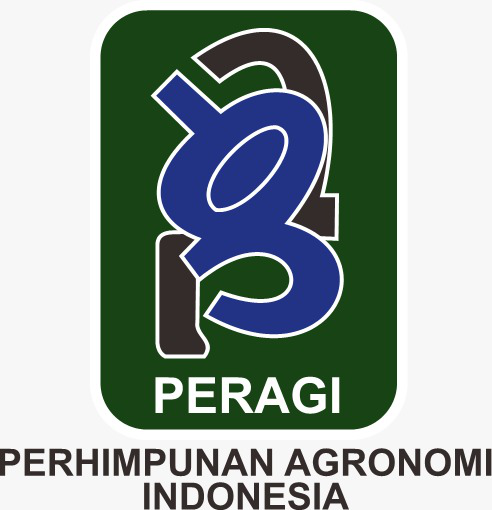Utilizing Eco-enzyme for Dormancy Breaking and Germination in Certified Rice Seed Testing
Abstract
Rice is one of the primary food commodities as a staple food in Indonesia. Increasing rice production can be done by using certified seeds. Dormancy is one of the obstacles in the rice seed testing process. Eco-enzyme is expected to be used for breaking dormancy and promoting germination in certified rice seed testing. This study aims to determine the optimal concentration and soaking time of Eco-enzyme in breaking dormancy of Inpari 32 HDB rice seeds and to assess the potential of Eco-enzyme in replacing KNO3 0.2% in breaking dormancy of Inpari 32 HDB rice seeds. This research was conducted in the seed quality testing laboratory of UPTD Food Crop and Horticultural Seed Certification, North Sumatra Province, from September to October 2024. The results of the study showed that the use of eco-enzyme with concentrations of 5%, 10%, and 15% and a soaking period of 24 and 48 hours did not show a significant difference or a significantly increased effect on various germination parameters compared to the use of KNO3.
Downloads
References
Anindita, R. (2023). Uji lama perendaman dan dosis ecoenzyme terhadap pematahan dormansi pada biji kopi robusta (Coffea canephora) [Skripsi, Universitas Islam Negeri Raden Intan Lampung]. https://repository.radenintan.ac.id/id/eprint/28907
Ashar, J. R., Farhanah, A., Haris, A., Tuhuteru, S., Khaerana, Pangestuti, R., Utami, E. P., & Dewi, S. M. (2024). Ilmu dan teknologi benih. CV. Tohar Media.
Badan Pusat Statistik. (2023). Luas panen dan produksi padi di Indonesia 2023 (angka sementara). https://www.bps.go.id/id/pressrelease/2023/10/16/2037/paddyharvested-area-and-production-in-indonesia-2023--preliminary-figures-
Fadlilla, T., Budiastuti, S., & Rosariatuti, R. (2023). Potential of fruit and vegetable waste as eco-enzyme fertilizer for plants. Jurnal Pendidikan IPA (JPPIPA), 9(4). https://doi.org/10.29303/jppipa.v9i4.3010
ISTA Rules. (2021). Aturan ISTA untuk pengujian benih. Balai Besar Pengembangan Pengujian Mutu Benih Tanaman Pangan dan Hortikultura.
Kementerian Pertanian Republik Indonesia. (2022). Keputusan Menteri Pertanian Republik Indonesia Nomor: 966/TP.010/C/04/2022 tentang petunjuk teknis sertifikasi benih tanaman pangan.
Puspitasari, M. S. (2017). Analisis efisiensi penggunaan faktor produksi pada usahatani padi dengan menggunkan benih bersertifikat dan non sertifikat di Desa Air Satan Kecamatan Muara Beliti Kabupaten Musi Rawas. Jurnal Ilmu-Ilmu Agribisnis, 6(1). https://doi.org/10.32502/jsct.v6i1.622
Seshu, D. V., & Dadlani, M. (2008). Mechanism of seed dormancy in rice. Seed Science Research, 1(3), 87–194. https://doi.org/10.1017/S0960258500000854
UPTD SBTPH. (2023). Laporan akhir kegiatan pengelolaan sistem perbenihan tanaman pangan tahun anggaran 2023. Dinas Ketahanan Pangan, Tanaman Pangan dan Hortikultura Provinsi Sumatera Utara.
Wahyuni, R., Septirosya, T., & Zam, S. I. (2023). Pematahan dormansi dan perkecambahan benih srikaya (Annona squamosa L.) dengan menggunakan H2SO4 dan GA3. Prosiding Seminar Nasional Integrasi Pertanian dan Peternakan, 1(1), 139–143.
Yuningsih, A. F., & Wahyuni, S. (2020). Kajian perlakuan pematahan dormansi pada varietas unggul baru padi. Prosiding Seminar Nasional Kesiapan Sumber Daya Pertanian dan Inovasi Spesifik Lokasi Memasuki Era Industri 4.0. https://repository.pertanian.go.id/handle/123456789/9266
Zirrazaq, F. H., & Putri, I. A. (2022). Pengaruh berbagai konsentrasi eco-enzyme dan lama perendaman terhadap perkecambahan benih cabai (Capsicum annum L.). Prosiding Seminar Nasional Biologi, 2(2), 573–580. https://doi.org/10.24036/prosemnasbio/vol2/485
Copyright (c) 2025 Hendrawati Juliana Sinaga, Diana Sofia Hanfiah, Hamidah Hanum

This work is licensed under a Creative Commons Attribution 4.0 International License.
Authors who publish with Jurnal Agronomi Tanaman Tropika (JUATIKA) agree to the following terms:
Authors retain copyright and grant the Jurnal Agronomi Tanaman Tropika (JUATIKA) right of first publication with the work simultaneously licensed under a Creative Commons Attribution License (CC BY 4.0) that allows others to share (copy and redistribute the material in any medium or format) and adapt (remix, transform, and build upon the material for any purpose, even commercially) with an acknowledgment of the work's authorship and initial publication in Jurnal Agronomi Tanaman Tropika (JUATIKA).
Authors are able to enter into separate, additional contractual arrangements for the non-exclusive distribution of the journal's published version of the work (e.g., post it to an institutional repository or publish it in a book), with an acknowledgment of its initial publication in Jurnal Agronomi Tanaman Tropika (JUATIKA). Authors are permitted and encouraged to post their work online (e.g., in institutional repositories or on their website) prior to and during the submission process, as it can lead to productive exchanges, as well as earlier and greater citation of published work.







 More Information
More Information



